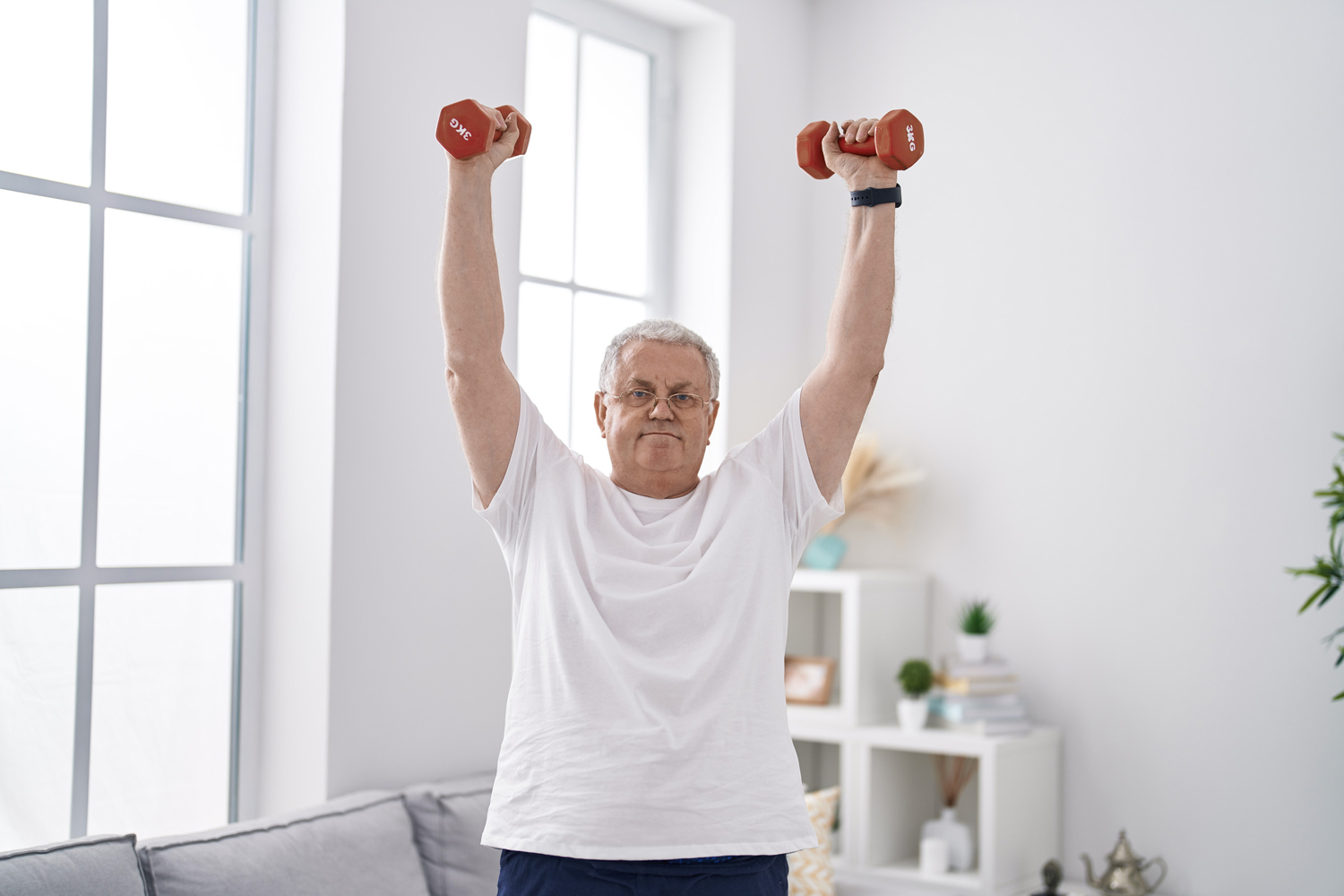FOR PEOPLE STARTING CHEMOTHERAPY, exercise may seem like a low priority or something to skip until treatment is complete. But a study published November 2022 in JACC: CardioOncology revealed benefits to being physically active throughout treatment.
Researchers studied 266 patients with lymphoma or breast, testicular or colon cancer who followed a 24-week fitness program that included riding a stationary bike and weight training. Half the patients participated in the program during the months they were undergoing chemotherapy, while the other half waited until chemotherapy was finished.
After treatment, those who exercised during chemotherapy had smaller decreases in cardiorespiratory fitness, as determined by peak oxygen uptake, than those who exercised later. Researchers cited previous findings that suggest peak oxygen uptake declines up to 25% by the end of chemotherapy treatment. Patients who exercised during the treatment period also reported lower levels of fatigue and maintained more muscle strength than patients who didn’t exercise during treatment.
Think beyond standard fitness activities to find an exercise routine you enjoy.
When it comes to physical activity during cancer treatment, “the rule of thumb is to start slowly and gradually, and monitor symptoms closely,” says cancer rehabilitation specialist Jessica Cheng at City of Hope Orange County Lennar Foundation Cancer Center in Irvine, California. “And I like people to move more in ways that they enjoy.” Beyond standard fitness activities such as walking, swimming and cycling, Cheng also recommends shadow boxing, dance and even modified wheelchair Zumba.
Those who started exercising after chemotherapy ended eventually regained cardiorespiratory fitness; the peak oxygen uptake for both groups was roughly the same one year later. But the researchers commented that exercising during treatment helps patients get back to normal faster.
For help starting an exercise program during treatment, seek out an exercise trainer with cancer expertise, such as someone with certification from the American College of Sports Medicine and the American Cancer Society. Or consider the Livestrong program, a free or low-cost 12-week fitness program offered at some YMCAs.
This study provides further support for American Society of Clinical Oncology guidelines issued in May 2022 that encourage patients to do aerobic exercise and strength training alongside treatment. It’s smart to check with your medical team before starting an exercise program, but it’s safe even for people who are sedentary to move more while undergoing chemotherapy, says Jessica Cheng, a physician specializing in cancer rehabilitation medicine at City of Hope Orange County Lennar Foundation Cancer Center in Irvine, California, who was not involved in the study.
Cheng aims to quash the misconception “that once you’re sick, you should stay in bed and stop moving,” she says. Evidence shows physical activity eases fatigue, anxiety and depression, and it may also improve survival for some cancers, Cheng says. “I plead with my patients to exercise [where appropriate] because of all these benefits.”
Cancer Today magazine is free to cancer patients, survivors and caregivers who live in the U.S. Subscribe here to receive four issues per year.





